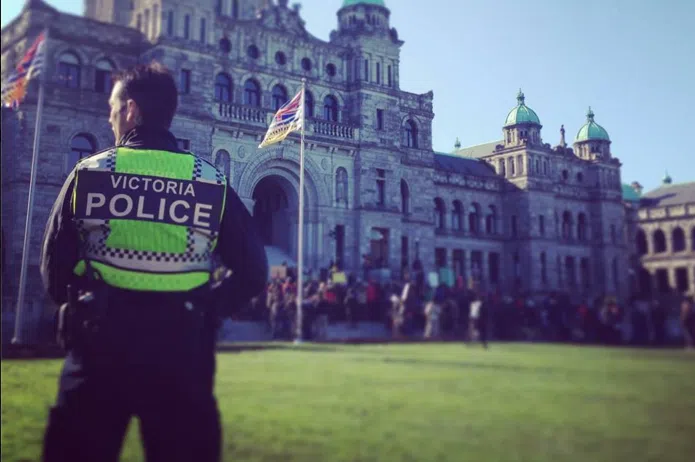
Human rights body awards Victoria cop $20,000 in drug advocacy case
VICTORIA — A Victoria police officer who advocates for the legalization of drugs while off-duty has been awarded $20,000 in a human rights case that pitted the nine-year veteran against his employer.
The British Columbia Human Rights Tribunal sided with Const. David Bratzer, saying the Victoria Police Department interfered with his rights as a citizen to freely express his views and ordered the award for injury to dignity, feelings and self-respect.
“Today, it’s fair to say that employees, in particular police officers, have more freedom to engage in debates about public policy issues than they ever have before in this province,” Bratzer said in an interview on Friday.
The tribunal ruled in an 86-page decision that Victoria police restrained or attempted to restrain Bratzer’s off-duty public advocacy activities as a member of the international organization, Law Enforcement Against Prohibition. Members of the organization include current and former law enforcement officials.


